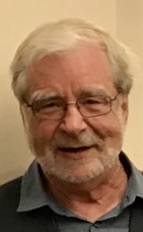Listening to Reinhold Niebuhr
- Marvin T. Brown

- Apr 26, 2022
- 2 min read
Updated: Mar 28, 2023

A 1966 photo of my class’s meeting with
Reinhold Niebuhr at Union Theological Seminary
when I was a student in Beverly Wildung Harrison’s
seminar on Niebuhr’s theology.
Reinhold Niebuhr was a leading theological ethicist in the middle of the 20th century. Barack Obama called Niebuhr his favorite philosopher. In an interview in 2007, President Obama said about Niebuhr’s ideas:
The compelling idea is that there's serious evil in the world, and hardship and pain. And we should be humble and modest in our belief we can eliminate these things. But we shouldn't use that as an excuse for cynicism and inaction. I take away. . . the sense we have to make those efforts knowing they are hard and not swinging from naive idealism to better realism.
The very title of Reinhold Niebuhr’s famous work, Moral Man and Immoral Society raises a serious question about our framing of Putin’s war. Instead of moral individuals and immoral groups, we have been led to think of immoral individuals and moral groups: Putin vs democracy. What would Niebuhr think about that?
Niebuhr wrote Moral Man and Immoral Society after his experiences with the KKK and white supremacy early in his career as a pastor in Detroit Michigan. I assume that these experiences were part of the background of his “moral man and immoral society” formulation. Racial pride, in other words, was best understood as a group identity.
Niebuhr applied a similar perspective toward nations, not only toward our adversaries, but also toward ourselves. National pride can be just as dangerous for us as for others. We cannot escape the fact about ourselves that Niebuhr observed in his book, The Children of Light and the Children of Darkness:
The fact that the will-to-power inevitably justifies itself in terms of the morally more acceptable will to realize man's true nature means that the egoistic corruption of universal ideals is a much more persistent fact in human conduct than any moralistic creed is inclined to admit.
As we now “weaken” Russia on the backs of Ukrainian combatants and civilians, the danger grows that we lose awareness of the complexity of our national identity.
In Chapter Seven of A Climate of Justice: An Ethical Foundation for Environmentalism, I tell the story of Reinhold Niebuhr’s life and work in the context of the white compromise that allowed segregation and lynching for the sake of white unity and prosperity. You can download this Chapter by clicking
.

Comments